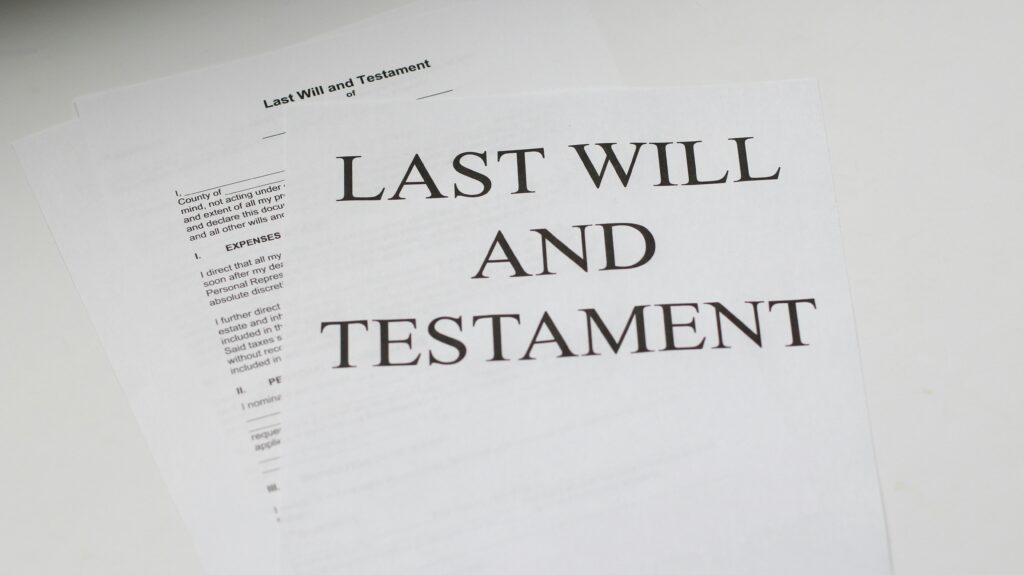To follow up our recent blog, “Estate Planning 101” (link the blog post), in this post, we will be building on that foundation to delve a little deeper into the topic of estate planning. We will be looking at some of the unfortunate errors and omissions we encounter too often while helping families through their estate documents. Many times these mistakes are easily avoidable.
Let’s take a look at a few of these mistakes.
Mistake #1: Completing the estate planning documents, but not implementing the plan.

It is a crucial step when someone finally takes the time to get their estate documents completed and signed; generally, you can let out a big sigh of relief! But that’s only the first step. Once you have the estate documents completed, typically there are some steps to make sure they are properly put in place. You might have signed that thorough and well-thought-out trust, but now you need to transfer some assets into it, like a home, bank, and investment accounts. Otherwise, those costly estate planning documents might just be good thoughts on paper; a great strategy, but not actually useful.
Mistake #2: Not having a Will.

This is a mistake we come across more often when someone isn’t married or a parent. The thought process usually goes, “I don’t have anyone relying on me, so I don’t need estate documents.” With a spouse, partner, or dependents, the process of who gets the money can be easier; the courts look for who is the closest relation. Without any of these close relations, it can get a lot more complicated, expensive, and time consuming to get the funds to the right family members (and it’s just that; ONLY family).
Mistake #3: Not having the right beneficiaries.

Going through a divorce is painful. Going through a divorce, and then inadvertently leaving a lot of your money to your former spouse? That’s worse. Without regularly going through your accounts and beneficiary designations, this is one of those things that can fall through the cracks. Make sure to review your 401(k),403(b), and IRA accounts, as well as life insurance policies to confirm who will inherit the assets if something happens to you!
Mistake #4: Keeping disorganized records.

Thankfully, this is one we don’t face with our clients, because one of the first items on our checklist is to get the full picture of a client’s financial life. But we have had to help clients through this with family members. Without a clear and concise list of accounts, assets and debts, money can get lost or take longer to find. This leads to delays, expense, and sometimes full loss of the account.
Mistakes #5: Overcomplicating an estate plan.

Trusts are wonderful things. One of the best things about them is that they are so customizable. They can be very simple, and when needed they can be complex. But just because a Trust can be complicated doesn’t mean it should be. Overly complicated Trust documents can result in errors when re-registering assets. Creating a plan that you may not fully understand, or isn’t understood by those inheriting your assets can lead to big problems.
Mistake #6: Waiting to deal with the estate.

When a loved one has passed, it is never an easy time. The last thing you may want to cope with is the estate settlement process. But the passage of time only allows for more things to be forgotten or the information to be lost. Worst, it can result in assets being inaccessible to the people to whom you want to make a bequest. Wrapping up an estate quickly and smoothly can also provide closure and peace of mind.
Mistake #7: Assuming that you are receiving the right information.

It always pays to double check. We have encountered financial institutions improperly adjusting the cost basis on an account after one of the account holders passed away. Institutions have their general rules, but they do not always know the specifics of each situation. Finding the right resources and the right team to support you through the estate planning and administration can make all the difference.
Thankfully, dealing with the estate of a loved one is not something that people have to deal with all throughout their lifetime. It only comes so many times, but it is important that it is done right each time. There are rarely do-overs. Estate planning mistakes might seem insignificant when you are making them, but they can have an outsized impact on your loved ones. Make sure that your estate plan is right for your situation and that you have taken ALL the right steps.
Up next, we continue our estate series by walking through what it looks like when you have been named as the Executor/Executrix.


